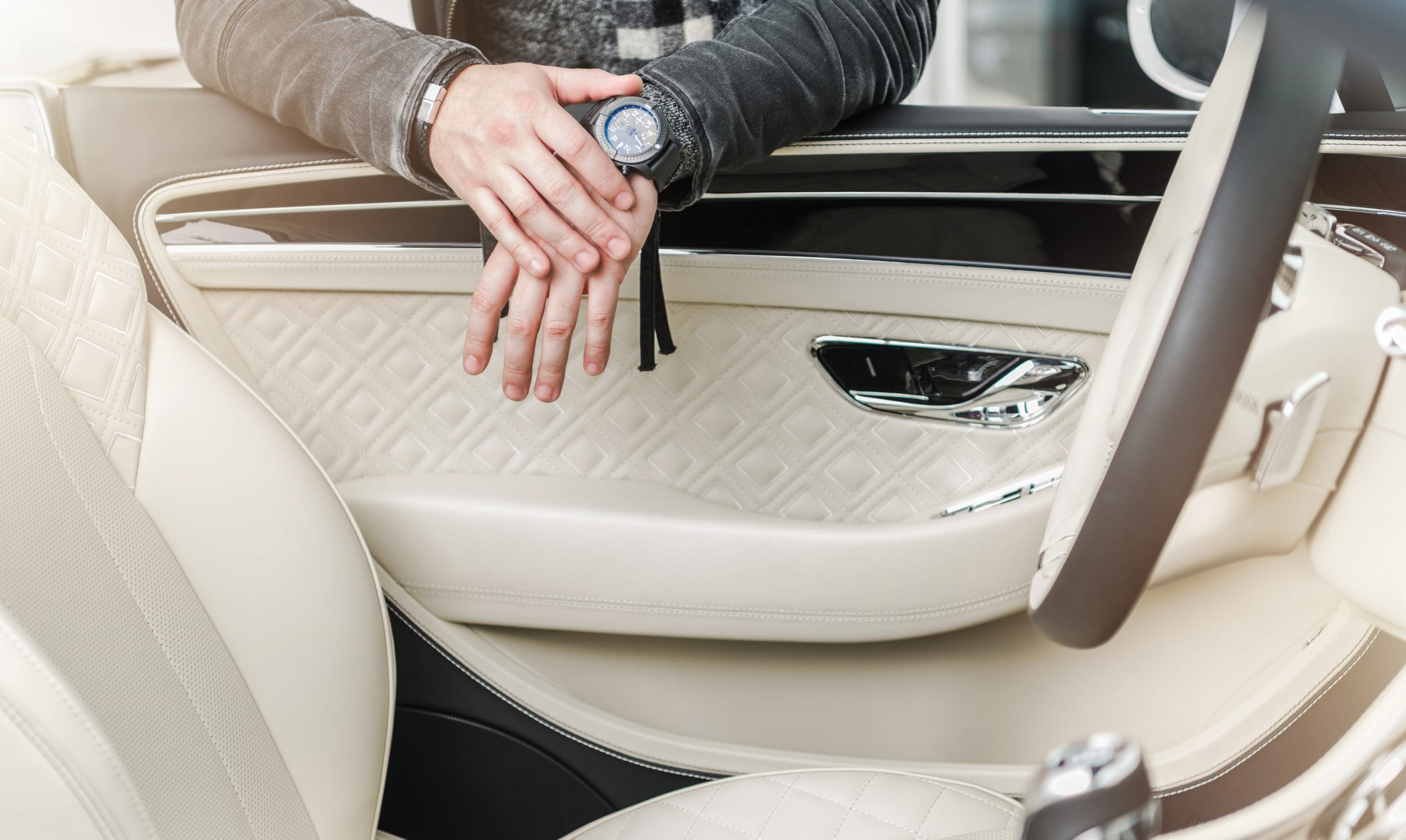


Luxury Auto Brands Expanding into Lifestyle Products

Luxury automotive manufacturers have always represented something larger than transportation. They are symbols of identity, aspiration, craftsmanship, and personal achievement. The connection consumers feel with high end vehicles has opened the door for an important shift in brand strategy: the expansion from automotive into lifestyle domains. This movement has accelerated over the past decade as premium marques look for additional revenue streams, deeper customer engagement, and wider cultural influence.
This shift is more than merchandising. It represents a full evolution in how these brands position themselves. By moving into fashion, hospitality, home goods, accessories, travel experiences, and even high performance electronics, automakers are redefining what it means to be a luxury brand. Entrepreneurs, founders, and business professionals can draw valuable lessons from this trend. A strong identity can support expansion well beyond the original product, and when leveraged correctly, it strengthens rather than dilutes the brand.
This development also demonstrates how companies can use lifestyle offerings to create new customer pathways. Buyers may aspire to own a premium car but begin their relationship with the brand through smaller, attainable luxury goods. These items often become early touchpoints in a long term customer journey.
Why Luxury Auto Brands Are Turning Toward Lifestyle Products
The global luxury market continues to evolve, influenced by changing consumer behavior, rising competition, and the desire for diversified revenue. Automotive brands have realized that their identities hold incredible value beyond their vehicles. Customers who appreciate refinement and craftsmanship often look for these qualities in other parts of their lives.
Diversification has become a strategic tool rather than an optional add on. Broadening product lines creates multiple entry points for different consumer segments. It also mitigates risk during periods when auto sales may fluctuate due to economic cycles, supply chain issues, or shifts toward newer technologies such as electrification.
Another factor driving this trend is the growing importance of experiential branding. Consumers want brands that feel personally meaningful. They want to showcase the lifestyle they identify with, which makes branded apparel, accessories, or home items more relevant than ever. In markets such as Asia and parts of Europe, this demand is especially strong and further motivates global luxury automakers to capitalize on it.
How High End Auto Brands Build Lifestyle Extensions That Customers Value
Premium auto manufacturers use their heritage as a foundation for lifestyle products. They draw on the craftsmanship, performance, and design philosophies that define their most admired vehicles. These elements create cohesion between the car itself and any related product line.
Visual continuity plays an important role. When a luxury brand extends into leather goods, eyewear, or clothing, the aesthetic often reflects the materials or colors used in its vehicles. This consistency strengthens recognition and gives consumers the feeling of owning a piece of the broader brand world.
Another tactic is partnering with established companies that specialize in a particular lifestyle category. This gives the automaker credibility while avoiding the challenges of entering a market with limited experience. Entrepreneurs frequently overlook the value of collaboration when expanding into new areas. Strategic alliances can accelerate entry while maintaining high quality.
Examples of Luxury Auto Brands Entering Lifestyle Markets
Prestige automakers have found unique ways to build lifestyle ecosystems. Many of these expansions illustrate how deeply a brand can influence taste and culture when executed well.
Porsche Design, part of Porsche, is among the most successful cases. Through its standalone design house, the company offers eyewear, timepieces, luggage, and electronics with a minimalist, high precision aesthetic. The brand attracts both car owners and people who are drawn to the engineering spirit associated with the company heritage.
Another standout is Mercedes Benz, which maintains a broad selection of lifestyle products ranging from fashion to home accessories. The company, accessible through Mercedes Benz, uses these products to express its sophisticated identity and often incorporates design elements reflective of its luxury interiors.
Bugatti, featured at Bugatti, has collaborated on everything from high end bicycles to luxury watches, offering consumers an opportunity to participate in the brand world of performance and exclusivity.
There are also more adventurous expansions. Lamborghini, found at Lamborghini, introduced a furniture collection developed with top Italian designers. These pieces mirror the sharp lines and bold aesthetics seen in the company vehicles.
Even Bentley Motors, showcased at Bentley Motors, has ventured into home collections that highlight British craftsmanship. Leather, metals, and woodwork reflect the materials used in its handcrafted interior cabins.
These efforts highlight the importance of staying true to a company brand identity. The products may shift categories, but the core qualities remain centered around the elements that made the automaker successful in the first place.
What Entrepreneurs Can Learn From These Strategies
The approach taken by luxury automakers offers several valuable lessons to entrepreneurs and business professionals. One of the clearest takeaways is understanding the depth and strength of brand equity. A well crafted identity can extend far beyond the original product offering when the company maintains consistency in design, quality, and messaging.
Businesses contemplating expansion often hesitate due to concern about diluting their main product line. The automotive sector demonstrates that strategic extensions can enhance the core brand when they complement the existing image rather than conflict with it. The key is authenticity. A brand that tries to enter unrelated markets without a connection to its identity risks confusing customers.
Another lesson involves the creation of aspirational entry points. High ticket industries such as automobiles, real estate, or hospitality can benefit from offering smaller, more accessible products. These items build familiarity and trust before customers make larger commitments. Entrepreneurs in service based industries can incorporate a similar approach by using introductory offerings that communicate the sophistication or quality of their larger services.
Additionally, partnerships can play a critical role in executing a successful expansion. Luxury automakers rarely attempt to manufacture every lifestyle item independently. Instead, they collaborate with specialists who can translate their brand principles into new categories. Entrepreneurs entering unfamiliar markets can adopt this model to strengthen credibility and reduce operational risks.

How Lifestyle Products Strengthen Customer Loyalty
When executed correctly, lifestyle expansions help automotive brands stay connected with audiences between vehicle purchases, which may occur only every few years. Accessories, apparel, and home goods create regular engagement opportunities.
Customers who feel aligned with the brand are more likely to participate in its broader ecosystem. Owning a piece of the lifestyle line reinforces emotional loyalty and strengthens the consumer connection to the brand values. Even individuals who do not yet own a high end vehicle can develop a personal relationship with the brand through these products.
These offerings also support community building. Many luxury auto enthusiasts connect with others who share their appreciation for craftsmanship or performance. Lifestyle products serve as visible conversation starters that encourage community interaction at events, clubs, or online spaces.
For automakers shifting toward electric or hybrid technology, lifestyle lines help maintain a sense of continuity. The driving experience may evolve, but the emotional essence of these brands can be carried through design focused consumer goods.
Impact on Brand Revenue and Long Term Market Positioning
Lifestyle expansions can meaningfully contribute to a brand revenue stream. Smaller goods often have high margins relative to production costs, especially when sold to an established audience. Some brands have created entire divisions dedicated solely to design, fashion, and accessories because the demand supports it.
This approach also strengthens long term strategy. Diversified product lines help protect brands against market volatility. During periods when automotive sales slow down or when supply chains experience disruption, lifestyle related categories can provide steady revenue.
Marketers and founders in other industries can adapt this mindset by identifying the core attributes customers appreciate most. These qualities can be translated into complementary offerings that broaden the company reach while staying consistent with the brand identity.
Final Thoughts
The move by luxury auto brands into lifestyle categories is shaping modern perceptions of what a premium manufacturer can represent. The automotive world is evolving beyond engines and performance metrics and is becoming more connected to culture, fashion, and personal identity. These companies have demonstrated that when a brand has a strong foundation and loyal customer base, expansions into adjacent markets can elevate the entire business.
Entrepreneurs watching this trend can learn the value of versatility, emotional storytelling, and authenticity. A well defined identity is powerful enough to support multiple revenue streams. When customers believe in the brand, they are willing to welcome it into many parts of their lives. For any business owner looking to grow, this strategy shows the impact of aligning product development with brand philosophy.
If executed with creativity and strategic insight, even the most traditional companies can reinvent themselves and reach new audiences through thoughtful expansion into lifestyle markets.
*Photo credit Porsche





